Wednesday, January 31, 2024. Annette’s News Roundup.
I think the Roundup makes people feel not so alone.
To read an article excerpted in this Roundup, click on its blue title. Each “blue” article is hyperlinked so you can read the whole article.
Please feel free to share.
Invite at least one other person to subscribe today! https://buttondown.email/AnnettesNewsRoundup
______________________________________
Joe is always busy.
Touch each tweet below to watch the President.👇
BREAKING: President Biden just slammed Donald Trump for cutting taxes for the wealthy and ballooning the deficit. This is a must watch. pic.twitter.com/scYO3XqdLi
— Biden’s Wins (@BidensWins) January 28, 2024
Our veterans aren’t losers.
— Joe Biden (@JoeBiden) January 28, 2024
The only loser I see is Donald Trump. pic.twitter.com/xP6z3W1FV8
The First Democratic Presidential Primary of 2024 happens in South Carolina on Saturday, February 3. Do you vote in SC? Do you know others who can?
______________________________________
Kamala is always busy.
South Carolina set the path for @JoeBiden to be the president of the United States and me to be the first woman vice president.
— Kamala Harris (@KamalaHarris) January 30, 2024
Let’s do it again. pic.twitter.com/v1z7QTWNLS
Kamala Harris brings abortion rights tour to San Jose - Los Angeles Times.
SAN JOSE —
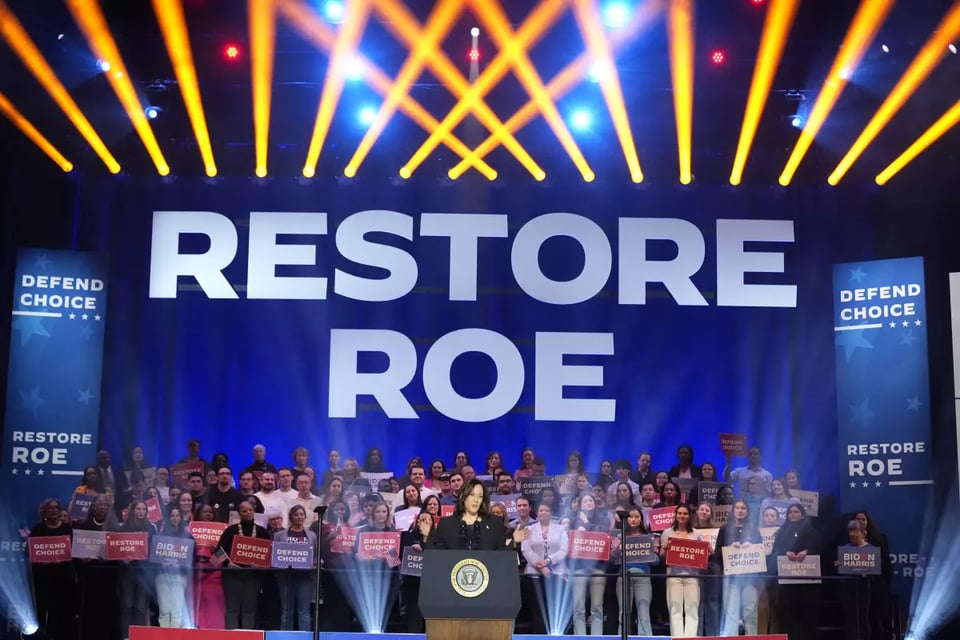
Vice President Kamala Harris brought her abortion rights tour to California on Monday, elevating the issue in a left-leaning state as Democrats nationwide warn that Republicans could enact a federal ban on the procedure if they take control of Congress on election day.
At an event at the Mexican Heritage Plaza in San Jose, Harris applauded the state for having some of the nation’s strongest abortion access protections but rallied California voters to remain “vigilant” and to take the issue seriously in congressional races in November.
“Don’t get too comfortable,” said Harris, who has also traveled to Virginia and Wisconsin to rally for reproductive rights ahead of the election. “Let’s understand: None of us can afford to sit back and think, ‘Thank God we’re in California.’”
The vice president’s visit to the liberal Bay Area comes as Democrats hammer the issue in campaigns to flip some of the state’s Republican-held districts in order to gain control of the House of Representatives. With several potential toss-up districts, California is considered pivotal to the Democratic Party’s goal.
Likely Republican presidential nominee Donald Trump has taken credit for and applauded the U.S. Supreme Court’s decision to overturn Roe vs. Wade but has stopped short of endorsing a national abortion ban. Abortion-rights advocates do not trust Trump and fear that the continuance of a Republican-majority House could risk the loss of more reproductive healthcare protections, including access to birth control.
On Monday, Harris portrayed abortion access as a personal freedom that is merely the tip of the iceberg, warning that if empowered, Republicans could also target LGBTQ+ and voting rights. She attempted to cut through deep divisions over the issue based on religious beliefs and focused on policies in red states that do not allow abortion exceptions in cases of rape or incest.
“One does not have to abandon their faith or deeply held beliefs to agree that the government should not be telling her what to do with her body,” Harris said to applause, calling for a majority to be elected to Congress who “simply agree it’s not the government’s right” to prohibit reproductive healthcare.
Democratic California Sens. Alex Padilla and Laphonza Butler and U.S. Health and Human Services Secretary Xavier Becerra joined Harris at Monday’s event, a show of force as Democrats focus on abortion rights in their attempt to hold the White House and win congressional control.
Becerra, who planned to meet with OB-GYN doctors and medical students at the University of California San Francisco following Monday’s event, said that if Democrats regain control of the House and President Biden is reelected, abortion rights nationwide can be restored.
“All I know is that we all gotta be in this one,” Becerra said. “There is nothing we can leave in our pocket.”
Monday’s event, also attended by Second Gentleman Doug Emhoff, was repeatedly disrupted by protesters calling for an Israel-Hamas cease-fire. Before being escorted out of the building, protesters chanted that Harris was “complicit in genocide”; in attempts to drown them out, her supporters chanted, “Four more years.”
Harris and Biden, running for a second term, have framed the future of abortion as a fundamental freedom at stake in the election.
California voters in 2022 approved a measure that enshrined reproductive rights in the state Constitution; since then, Democratic Gov. Gavin Newsom has signed laws that solidify the state as a “safe haven” for doctors and patients.
Under California law, law enforcement agencies are prohibited from helping with out-of-state abortion investigations. California has also moved to broaden the types of providers that can perform abortions and opened training to out-of-state doctors living under “hostile” laws.
Abortion rights advocates fear that the continuance of a Republican-majority House could risk the loss of more healthcare protections. Nearly two dozen states have limited abortion access or banned it altogether.
Last week, Planned Parenthood Affiliates of California released a “burn book” that targets a dozen congressional candidates, including Reps. John Duarte (R-Modesto) and David Valadao (R-Hanford), for their voting records on abortion legislation.
“The future of abortion is very much going to be determined over the next 12 months, including in California,” Sue Dunlap, president and chief executive of Planned Parenthood Los Angeles, told The Times in an interview.
Dunlap said she is concerned about voter fatigue on the issue because of California’s long-held abortion rights protections.
“We don’t get there if we don’t win in California,” Dunlap said. “We’re not living in a country or a world where California exists in and of itself. We have to take these threats seriously.”
Another thing happened about abortion too.
Monday in Pennsylvania.
The Pennsylvania Supreme Court ruled that the right to an abortion is fundamental; and they overturned a 42-year old law that prohibited Medicaid for paying for them!
Pennsylvania Supreme Court clears way for challenge to ban on Medicaid abortion coverage.
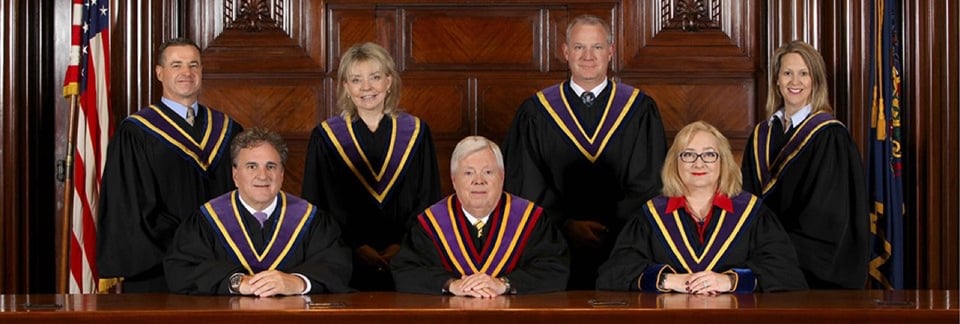
The Supreme Court of Pennsylvania issued a ruling Monday finding that a 1982 state bill barring Medicaid from covering most abortions can be challenged in court, years after the initial legal petition was dismissed.
The court ruled on a case brought forward by health care providers in 2019 on behalf of their patients challenging the Pennsylvania Abortion Control Act of 1982, which prevents abortions from being covered under Medicaid unless the pregnancy is a result of rape, incest or it threatens the life of the mother.
The plaintiffs in the case argued that the 42-year-old legislation violated the Pennsylvania Constitution as well as the state’s Equal Rights Amendment and equal protection provisions. They further argued that other states permit their Medicaid programs to have abortion coverage that goes beyond the few exceptions allowed under the Abortion Control Act.
The case was dismissed by a lower court in 2021.
While the higher court did not ultimately rule on the question of the coverage exclusion’s constitutionality, the opinion Monday cleared the way for plaintiffs to once again challenge it in court.
In reviewing the case, the Pennsylvania Supreme Court found that the state’s constitution guaranteed a “fundamental right to reproductive autonomy,” which included the decision on whether to have an abortion, though only two of the five justices who considered the case explicitly concurred with this ruling.
In Pennsylvania, abortion is allowed up to 24 weeks into a pregnancy.
A lower court had previously ruled that a prior state case from 1985 — Fischer v. Department of Public Welfare — had affirmed that the abortion coverage exclusion was constitutionally sound and also ruled in favor of the Pennsylvania Department of Human Services, which had argued the providers lacked standing to challenge the law.
The Pennsylvania Supreme Court ruled in its opinion Monday that the providers have standing, as they had “plainly established that they are aggrieved by the Coverage Exclusion,” and also overruled the prior ruling based on the Fischer case.
The court also found that discrimination based on sex-based characteristics was a violation of the Equal Rights Amendment, which differed from the lower court’s ruling.
“Today’s decision is a landmark victory for reproductive freedom,” Alexis McGill Johnson, president and CEO of Planned Parenthood Federation of America, said in a statement.
“With abortion under attack across the country, Pennsylvania continues to be a beacon of hope. Planned Parenthood Federation of America applauds the advocates and providers, including our Pennsylvania affiliates, who fought tirelessly for this win,” she added. (The Hill).
______________________________________
A Hero of Abortion Rights is very ill.
Keep her in your thoughts.
Cecile Richards Is Working Through It
The former Planned Parenthood chief is still fighting for abortion access — even while living with brain cancer.
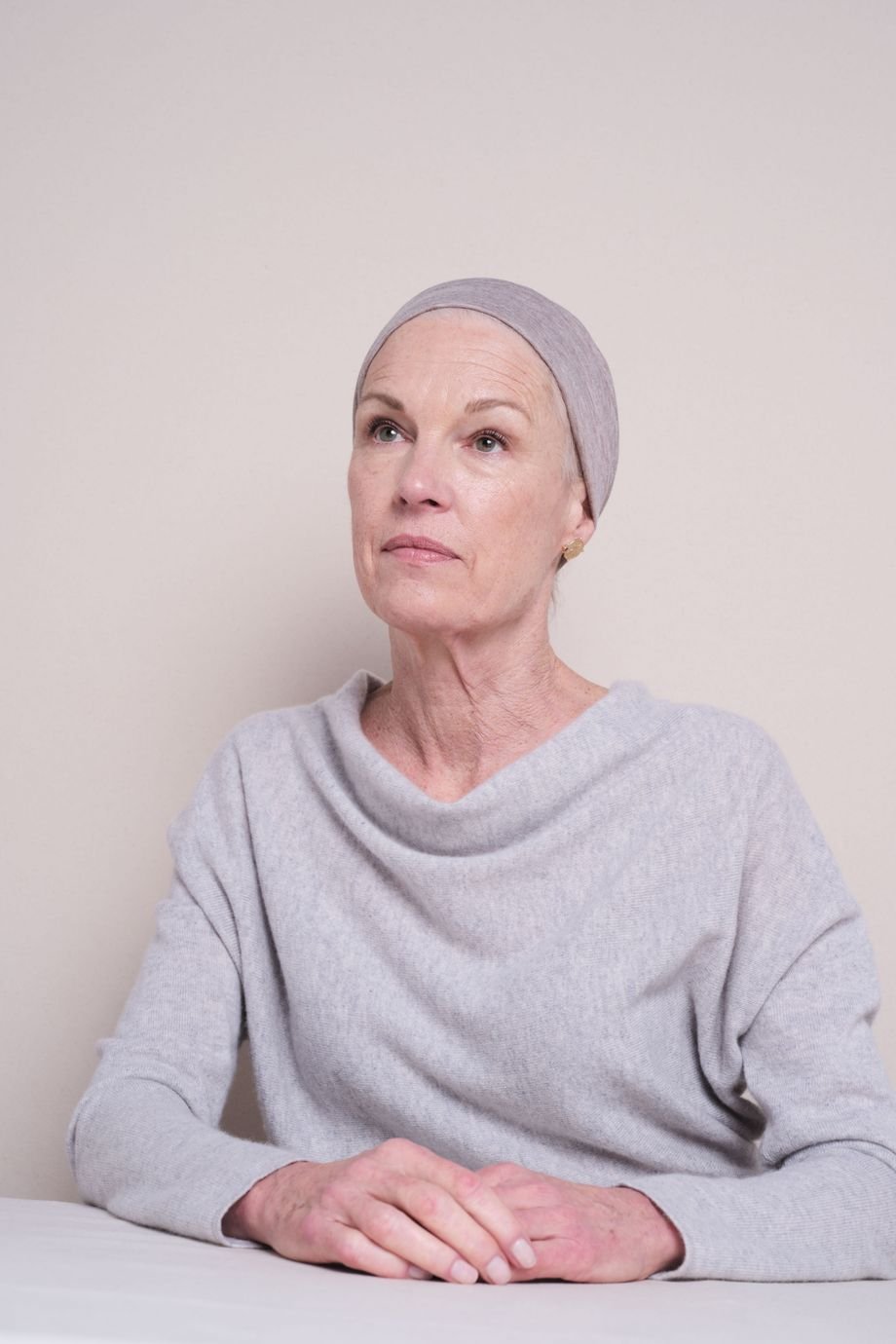
Six months ago, on a family vacation in Maine, Cecile Richards, the long-serving president of Planned Parenthood, discovered that her hand had seemingly forgotten how to write. Alarmed, she and her husband, Kirk Adams, drove back to New York and, eventually, went to the ER at NYU. As Richards was getting wheeled into surgery for a brain tumor two days later, her eldest daughter, Lily, an assistant secretary for public affairs at the U.S. Treasury Department, was in labor at another hospital. By the time mother and daughter were each discharged, Richards, 66, had her first grandchild and a diagnosis of glioblastoma: incurable brain cancer for which the median survival rate is 15 months.
“Teddy is getting hair,” she says cheerfully of her grandson when we meet at the Financial District co-working space where she is still strategizing for the abortion “war effort,” as she calls it. Richards is publicly divulging her illness for the first time. She gestures toward her lavender head wrap, which has replaced her signature sideswept, white-blonde pixie cut: “And I’m losing it.”
Always rangy and elegant, she’s a bit thinner now. The Texas drawl is more halting, but thanks to speech therapy and good fortune, Richards has remained remarkably cogent. She tells me she’s learning to write again; she’s still ahead of the baby on that.
It’s the second day of the Arctic blast that broke the city’s two-year snowless streak, and on her way here, Richards found herself stranded at the West 4th Street station. She chose to walk the icy sidewalks south even though, she tells me as we navigate the co-working space’s disorienting glass loop, “what I cannot do is fall.” Only the day before, Richards was getting treatment at Sloan Kettering. Today, she is hard at work on Charley, a bot she co-created that helps abortion seekers get good information on how to safely end their pregnancies. She has lined up three hours of nearly uninterrupted meetings that would leave someone without cancer tired. It’s hard not to feel that Richards isn’t trying to prove something just to her colleagues but also to herself.
“Cecile is a high-expectations, high-performance person,” Adams tells me dryly. “Sometimes in extremes.” Her younger daughter, Hannah, says that before her mother got sick, it wasn’t enough for her to insist the family hike the Inca Trail to Machu Picchu; they had to go back and do the tougher Salkantay Trail — in a hailstorm.
Running Planned Parenthood for 12 years, growing it by leaps, establishing it as a star in the Democratic Party firmament, staring down House Republicans as they leveled flagrant attacks on the organization — all required stoic endurance. But those days look tame now. Roe fell four years after she left the most prominent job in reproductive rights. The aftermath has surfaced criticism of national pro-choice organizations for being too white and too timid, and of Planned Parenthood in particular for allegedly putting its pragmatic interests ahead of feminist goals. Abortion access has been wiped out in nearly half the country, and GOP officials are foaming at the mouth to prosecute anyone who helps someone get an abortion and forcing women to bleed out in order to get emergency care. Nearly one in five patients is now traveling out of state to get an abortion, and that is the kind who can get out. An untold number are getting pills online, legally and not so legally. And Richards has brain cancer.
All of this means, to Richards, that there’s no time to waste. There’s Charley — whose name is meant to convey a friend of indeterminate gender — which has had 16,000 visits in its first four months. She wants to document what’s happening on the ground in abortion-ban states. She still talks to politicians and activists and organizers and organization presidents. When I ask her why she’s so committed to continuing to work, Richards says, “What was Mom’s line?” Mom being the late Ann Richards, the legendary Texas governor and last Democrat to run the state. “Why should your life only be about you?”
Richards grew up steeped in liberal activism, the eldest daughter of Ann, then a dazzling, frenetic housewife, and David, a civil-rights lawyer from a prominent local family. In Ann’s memoir, she calls Cecile “a model child. She was the one David and I, in our youthful earnestness, insisted on teaching all the rules. None of this left-alone, freethinking upbringing.” They were both astonished when the child they believed to be a demure conformist was disciplined for wearing a black armband to seventh grade in protest of the Vietnam War. At her graduation from Brown, Richards didn’t walk because she was too busy unfurling a flag demanding the university divest from South Africa. She met Adams in an effort to unionize hotel workers in New Orleans.
When Ann’s political star began to rise in the 1980s, Cecile moved to Texas to help run a long-shot bid for governor. Pregnant with twins, Cecile began her days strapped to a fetal heart monitor and spent the rest driving through the state campaigning, enormous belly behind the wheel. She later worked as a deputy chief of staff for Nancy Pelosi.
This was apt preparation for running Planned Parenthood, which, depending on your view, is either Satan incarnate or a millstone around Democrats’ necks or, for over 2 million people a year, a lifesaving source of affordable or free health care. Richards had her activist bona fides but also the polish and savviness of the insider, the better to woo politicians and donors who help Planned Parenthood become the largest single provider of sexual and reproductive health care, including abortions. Richards took charge in 2006, when the Democratic Party was flirting with selling out abortion rights to try to win back an imagined moderate voter. Her response was to shore up Planned Parenthood’s state-level political organizing. “If I’m asking you to take a hard vote for us in Ohio, we’re going to have people on the ground — troops, voters, volunteers; you’re going to see us in their T-shirts,” she says.
Barack Obama had talked a lot about compromise when it came to abortion, but on contraception he called Richards personally to tell her he’d kept full coverage for birth control in the Affordable Care Act. (This required defying the Catholic bishops and the advice of one Joe Biden.)
Still, the vise was tightening at the state level. Richards was rallying the troops in the Texas capitol when Wendy Davis filibustered a suite of abortion restrictions but couldn’t stop it from taking effect. And Richards had to steer Planned Parenthood through a Project Veritas–style secret-video scandal, featuring ginned-up claims that the organization’s affiliates were selling fetal tissue, and stave off a renewed attempt to defund the organization.
When Donald Trump won in 2016, he rapidly laid the groundwork for Roe’s destruction. Richards, who had zealously campaigned for Hillary Clinton, now faced a personal bind. “I had this great plan that we were going to elect Hillary Clinton president and then I would put a bow on it and be gone,” she tells me. “I had been there ten years, which is a long time and a good time. But then that didn’t happen.” Two years later, she felt it was time.
Richards was difficult to replace. Her successor, Leana Wen, was fired after less than a year. The tenure of Alexis McGill Johnson has been steadier, if less visible, but the collapse of the traditional abortion-law structure has laid bare long-simmering debates.
Among them: how to talk about abortion itself. Some activists had winced when Richards went on television during the defund battle and repeated that abortion comprised only 3 percent of what Planned Parenthood did, which they believed threw abortion patients under the bus and left abortion at the mercy of more impassioned enemies. She did not write about her own abortion until eight years into running Planned Parenthood. “It’s not that I hadn’t told people my story, but yeah — just like a lot of things, I think I didn’t focus on my own story as much,” Richards says now. “And maybe it should have occurred to me before, or I don’t know, but I am sure there is abortion stigma within all of us.” In her memoir, Make Trouble, she says a bit more: It was after she had three children and felt like she could barely make it work as it was. It wasn’t a hard decision; it was the right decision. At a moment when only stories of horrific diagnoses and enormous hardship seem to make the cut, it’s actually refreshing to hear that someone just didn’t want to be pregnant.
Richards thinks about it. “I probably was of the era that people thought, If you didn’t have a dramatic story, then why would you be telling it?”
Ten days before the diagnosis — “We call it BT, ‘before tumor,’” says Richards — she and Adams had put their Upper West Side apartment on the market. They’d closed on a pre–Civil War home in the Lower Garden District of New Orleans, where they had met over 40 years ago. “I think I just always imagined we would get back there,” Richards tells me at the airy ground-floor apartment on Central Park West. AT, they hastily yanked the New York place off the market, and she started radiation and chemotherapy. Richards settles her long frame on a red upholstered barrel chair across from her writing partner and close friend, Lauren Peterson. Adams, dapper and with a shock of white hair, has been serving coffee. (He’s still in the labor-union business, now the executive director of the Healthcare Education Project.) Richards has shooed away Ollie, the excitable salt-and-pepper dachshund she adopted, who she’s worried will pee on the floor at the sight of me.
So far, the doctors have been encouraged. “I am sleeping. I’m eating. I’m having fun. I’m working. It’s like Pinocchio — I’m a real boy, and that feels really good,” Richards says. “Because six months ago, I didn’t know that this was possible.” She’s still working through it: Once, she would bake five pies for a 12-person Thanksgiving; now, she’s relearning how to roll out a piecrust. Richards will be visiting her grandson in D.C. that weekend, and soon she and Peterson are heading to Louisiana to work on the documentation project. Adams says they’re talking about the spring and the summer.
And she’s focused on Charley, which she co-founded with former Planned Parenthood chief strategy officer Tom Subak. They had set out to counter what they thought abortion seekers would discover — intentional misinformation — and realized that what they really needed was help with the nuts and bolts of how and where to get an appointment or, increasingly, pills by mail. The next task was building a moat of internet security and privacy that no law-enforcement official could cross. Everyone is gearing up for a possible surge if Florida’s supreme court allows the state to enforce sweeping abortion restrictions; worse, the U.S. Supreme Court is going to hear a case that could limit access to abortion pills.
Richards is still talking to movement leaders on strategy. She’s well aware of the irony that at one time she had to convince Democrats that abortion rights, birth control even, were winning issues. Now, they’ve conceded that mobilization on abortion might save their hides, as it did in the 2022 midterms. Biden has invited Kate Cox, who was denied an abortion in Texas after a fatal fetal diagnosis, to the State of the Union.
Richards thinks Republicans should be asked constantly about the women in ban states who have been forced to bleed out or suffered sepsis because they couldn’t get emergency abortions. “We hear a tragic story, or another woman becomes a plaintiff in Texas, and then we move on. It has got to be repetition every fucking day because there is no answer,” Richards says furiously. “And look at the Republicans. They are running and hiding on this issue.”
A few months after Richards took the Planned Parenthood job, her mother died of cancer. The diagnosis, Richards writes in her memoir, “was the first time Mom acknowledged that there was such a thing as human frailty.” She says, “Vulnerability — that was just not who she wanted to be. And looking back on it, I think it made it so much harder for her because she was lonely at the end.” Richards seems determined to take a different path than her mother, down to sending out an upbeat video to all her friends and colleagues to break the news last summer in which she joked about the “crazy Frankenstein scar” on her head.
The latest treatment is twice-weekly infusions through a clinical trial. “I mean, it’s like, What do I gotta do to stay alive? I’m good with it. It’s totally manageable, but these things are unpredictable. So I feel like it has helped me focus on what I want to do with the time I have. And I’m excited. I’ve been blessed.” She pauses, tries to recapture her poise: “Okay.” She’s choking up. “I have these moments,” she says.
From the couch across from us, Peterson chirps, “We are not going to cry today, everybody!”
We all might cry today, actually. “I’ve been blessed to have always had work that I cared about,” Richards continues. “So many people I’ve worked with and organized, nursing-home workers and hotel workers and janitors, they didn’t have any options. And they worked because they cared about their jobs, but they worked because they had to support a family. But I have been one of the really privileged few that could do what I thought needed doing. And so whatever comes next, I have that.” (The Cut. New York magazine).
______________________________________
Another Hero, E. Jean Carroll, is on everyone’s mind.
Nine New York Jurors Saw Trump for Who He Really Is.

I teared up as I watched news coverage of the Carroll verdict. Trump is not above the law.
Eighty-three million, three hundred thousand dollars. When a New York jury awarded that amount to E. Jean Carroll on Friday in her defamation action against former President Donald Trump, I was awestruck.
Now, as a lawyer, I had thought a fair verdict could range anywhere from $75 to $100 million—or even more. Carroll had already obtained a $5 million verdict in a trial just last year, an amount comprising roughly $2 million for his having sexually abused Carroll in 1996, and roughly $3 million for his having defamed her in 2022, after he (unwillingly) left office.
This trial, the second trial, was held to determine what damages she had suffered when he defamed her in 2019, when Carroll first told the world how Trump had assaulted her. It stood to reason that the damages for that slander would be much greater—after all, that had been the first time he’d lied about her, and, importantly, his status as president had compounded the impact of those lies. On top of all that, he continued to lie about her, over and over again, even during this second trial—displaying a maliciousness that could justify punitive damages several times higher than the amount quantifying her actual harm.
So on a professional level, I wasn’t surprised. But on a personal one, I felt overwhelmed. Nine regular people in New York, picked at random, meted out justice to a man who had been president of the United States, a man who claims to have billions of dollars.
They showed that the justice system still works in America. Donald J. Trump can’t do whatever he wants with impunity. He is not above the law.
I’m not ashamed to say tears welled up in my eyes. I watched the television coverage silently. My phone buzzed and beeped, and instead of answering, I turned it off. I took a walk to compose myself.
As I strolled, my mind went back to a hot Monday night in New York City in July 2019, when I had attended a small dinner party at the home of my friend Molly Jong-Fast. Many interesting people were in attendance, and among them was one I had never met. She was an older woman, tall, elegant, with closely cropped hair, somewhere in her late 60s, I would have guessed. But despite never having met her, I knew who she was.
She was E. Jean Carroll. Three weeks before, New York magazine had published an excerpt of a book she had written about the bad men she had met in her life. One was Donald Trump. She said he had raped her in a department-store dressing room in 1996. Trump denied the allegation, accusing her of lying, and, with classic Trumpian mendacity, claimed never to have met her—even though the New York piece included a photograph showing them together at a Saturday Night Live after-party in the ’90s. Trump added that he would never have raped her—not because he would never rape anyone but because she “was not my type.” A few days later, The New York Times posted a taped interview with two upstanding friends of Carroll’s, to whom she had described the sexual assault almost immediately after it had happened.
I had little doubt she was telling the truth. It’s never easy—sometimes it’s impossible—to determine precisely what happened between two people alone in a room. But as we’ve learned during the #MeToo era, when you have a man with a long history of facing sexual-abuse allegations and a woman who contemporaneously told her story to others, you can have a pretty high degree of confidence that the victim is telling the truth.
And now there she was, standing before me. Carroll knew who I was, because of a recent article I had written about her, arguing for her credibility, in The Washington Post. We exchanged greetings. I praised her for her courage in speaking out. She thanked me for my article. She then told me that some people had suggested she sue Donald Trump. My response was immediate: “You have a case.”
I argued that she had a simple, straightforward claim for defamation. She said he had raped her, lied about it, and, in doing so, lied about her—calling her a lunatic and a liar to all the world. That’s defamation—period. I thought to myself, Who should represent her? And that answer, too, came to me in a flash. I told her I knew a fabulous lawyer who might consider doing it. I didn’t tell her who. The conversation was over in just a couple of minutes.
Early the next morning I texted, then called, the lawyer I had in mind, Roberta “Robbie” Kaplan, an outstanding litigator who had become a good friend. Robbie was already famous for having won Windsor v. United States, the landmark Supreme Court case that in 2013 struck down the Defense of Marriage Act. Would you be willing to talk to Carroll? I asked her. She said yes. And so at 8:47 a.m. on Tuesday morning, July 16, 2019, I dashed off an email to Carroll and Kaplan. It contained just two sentences: “Jean and Robbie—I’m putting you together on this email so that you can get in touch. Best regards to you both. g.”
Four and a half years later, when I saw the news of the verdict, I couldn’t get these moments out of my mind. I spent 30 years as a litigator, and I had never become as emotionally invested in a litigation as I did with this one, in which my only contribution was a single short email. And that’s not just because I represented mostly corporations in my practice. It was because this case, more than any I had ever seen, involved justice.
Friends and journalists were messaging me. What did I think? It seemed to me that to talk about the law of defamation, punitive damages, even immediate political impact, almost diminished the meaning of the verdict. Because this case was one act in a morality play of immense significance, involving not just one man—but an entire nation. A larger drama about right and wrong. About truth and lies. About justice and injustice.
And then there is the verdict in the bigger sense of the word—not the dollar amount but the judgment passed on the man, Donald Trump. As Judge Lewis A. Kaplan, the presiding judge in the trials, said in open court, Trump is somebody who “just can’t control” himself. And as I have previously written, he can’t control himself because he’s a deeply disturbed human being. He’s a man who has shown no sign of a conscience, indicated no empathy, given no expression of remorse.
Those of us who have watched him closely for many years know this. But many Americans don’t. They go about their busy lives, and they get little dribs and drabs about politics in a variety of different ways. They see politics as messy—which it certainly is—and find sorting out lies from truth difficult. This has always given Trump an advantage. Some in the media have inadvertently normalized him—not because they think he’s normal, but because they instinctively try to describe events and people in familiar terms. And since January 20, 2021, he’s had yet another advantage: People haven’t seen as much of him as they once did.
But the jurors—in both this trial and the earlier one—got to see Donald Trump, up close and personally. Through their own eyes, throughout these trials, they got to see how Trump had nothing but contempt for the woman who accused him of rape, and whom he had defamed so many times. They saw, from just a few feet away, how he had nothing but scorn for the court, the judge, the law—and, by extension, the jury and each and every one of us. They saw that Donald Trump is a man who must be held to account if simple decency and justice are to be upheld.
The verdict tells us a lot about the nation as well. We live in an age when political tribalism, for so many, has overcome their understanding of right and wrong, of fact and fantasy, and of reason and unreason. Too many Americans support Trump, not because he deserves their support, but because they want to support him, because they consider themselves members of one team against another, or because they’ve done so in the past and don’t want to admit error.
And so they pretend that he is not who he is. A lot of these people don’t know any better, because they’ve walled themselves off from reality, changing the channel whenever they begin to hear things they don’t want to hear.
But in the upper reaches of our nation’s political system, many of his supporters and enablers do know better. They know who Trump is. They talk about who he is behind closed doors. Recall, for example, that, as reported by Peter Baker and Susan Glasser, one of Trump’s chiefs of staff purchased and relied upon a remarkable book, a compendium of essays from psychiatrists, psychologists, and other mental-health professionals describing Trump’s warped psyche and explaining its danger to the nation. Many others have now come forward to acknowledge his moral and psychological deficiencies; even Jenna Ellis, the disgraced lawyer who once devoted herself to Trump, has now publicly described him as a “malignant narcissist.”
But too many elites still won’t tell the truth. When somebody asks them to go on the record about it, they still say things like “no comment,” or “l didn’t see the tweet,” or “I haven’t followed the case”—or change the subject to something else. And they’re all lying and dissembling—to protect the worst liar of all. But it’s long past time for these people to admit what can’t be denied: that they’ve been covering up for a pathological liar, a sexual predator, a man who would put himself over everyone and everything else, including the nation and its Constitution and laws. That he is a man who does not deserve to hold any office of public trust, let alone the highest office in the land.
Some things rise above politics. The challenge posed by Donald Trump is about right and wrong. Everyone needs to look at it that way. And that’s just what the jury did. (The Atlantic).
______________________________________
Merrick Garland announced surgery, and a brief absence.
Merrick Garland to hand over duties to deputy attorney general while undergoing back surgery.
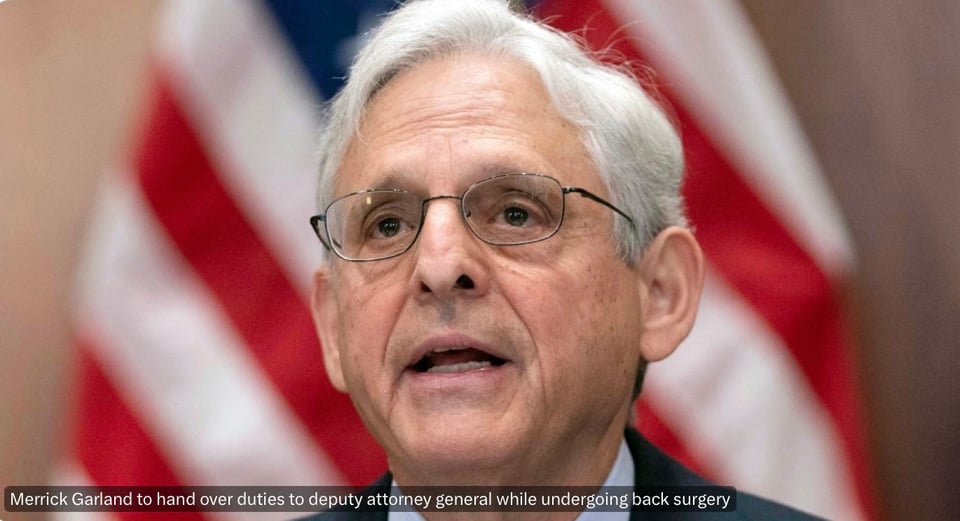
The Justice Department announced the procedure ahead of time, a contrast with how Defense Secretary Lloyd Austin handled his recent hospitalization.
WASHINGTON — Attorney General Merrick Garland will undergo back surgery this weekend and temporarily hand over his official duties to his deputy, the Justice Department announced Monday.
A Justice Department spokesperson described the medical procedure, scheduled for Saturday, as "minimally invasive" but said it will require Garland, 71, to be under general anesthesia for about 90 minutes, during which Deputy Attorney General Lisa Monaco will assume his duties.
"The delegation of his duties will go to the Deputy Attorney General shortly before the procedure, during the procedure, and for a brief period following the procedure to allow for recovery from general anesthesia," Public Affairs Director Xochitl Hinojosa said in a statement.
"The Attorney General is likely to go home the same day" as the procedure and "will return to work the week of February 5th,” Hinojosa said. (NBC News ).
______________________________________
The News that UN workers in Gaza joined the Hamas October 7th attack was stunning. The fallout is stunning too.
A comprehensive description of the UNRWA in Gaza.
What Is UNRWA? Who Are the Palestinian Refugees It Serves? And Why Are Countries Freezing Their Funding?

Palestinian women walking past a mural that represents the Palestinian right of return, on the wall of a UNRWA training center School in Amman, Jordan.
Providing education, health and social services, and, in times of war, life-saving aid and shelter, the UN agency is now one of the biggest employers in Gaza. But allegations of Hamas involvement may imperil its operations.
The UN Relief and Works Agency for Palestinian refugees (UNRWA) is in the news after Israeli authorities offered information last week that at least 12 of its employees had taken part in the October 7 attacks in southern Israel by Hamas.
UNRWA immediately fired the employees in question, with UNRWA Commissioner-General Philippe Lazzarini explaining that"to protect the agency's ability to deliver humanitarian assistance in Gaza, I have taken the decision to immediately terminate the contracts of these staff members and launch an investigation in order to establish the truth."
To Palestinians, UNRWA is an essential source of assistance operating inside the Gaza Strip and other Palestinian refugee camps in the Middle East. It provides education, health and social services, and, in times of war, life-saving aid and shelter. It is also one of Gaza's largest employers, with 13,000 people, mostly Palestinians, on staff.
In recent years, though, UNRWA has found itself embroiled in scandal and subject to much public criticism – some of which it denies, and some of which it has accepted and sought to correct.
UNRWA's distinct approach to refugees
UNRWA was established in 1949 after Israel's war of independence, in order to provide shelter, welfare and health services for hundreds of thousands of Palestinian refugees following the Arab armies' defeat.
A year later, the UN High Commissioner for Refugees was established to handle all of the world's refugees. However, following pressure from Arab states, Palestinian refugees remained the sole responsibility of UNRWA – which to this day remains the world's only refugee agency dedicated to a specific population.
The role of a traditional refugee agency would typically involve resettling people in order to end their refugee status. Initially, this was UNRWA's primary goal: to assist the Palestinian refugees of the Nakba (the Arabic term for 'catastrophe,' referring to the displacement of hundreds of thousands of Palestinians during the establishment of Israel in 1948) in rebuilding their lives where they were now living, whether in the West Bank, East Jerusalem and Gaza, Jordan, Lebanon or Syria.
Palestinians, however, resisted permanent resettlement in other Arab countries, believing in their right to return and to self-determination. Host countries also largely refused to fully integrate them.
How UNRWA defines a Palestinian refugee
According to the UN resolution that founded UNRWA, the organization will "continue to fulfil its mandate of providing services to Palestine refugees until a just and durable solution to their plight is found." But how does UNRWA define a Palestinian refugee?
The definition of refugee has also taken on several iterations over the decades. At first, the term "Palestinian refugee" referred to those who had lost their homes and/or livelihoods as a result of the 1948 war. This definition was later broadened to include their children. Then, beginning in 1982, the right to be defined as a refugee was expanded to include subsequent generations.
At first, UNRWA used the term "Palestinian refugee" for those who lost their homes or livelihoods in 1948. The definition was later broadened to include their children, and then, the right to be defined as a refugee was expanded to subsequent generations. Those who have received citizenship from another country are also refugees according to UNRWA.
The UNHCR, by contrast, defines a refugee as a person who "owing to well-founded fear of being persecuted for reasons of race, religion, nationality, membership of a particular social group or political opinion, is outside the country of [their] nationality and is unable or, owing to such fear, is unwilling to avail [themselves] of the protection of that country."
UNRWA also includes those who have received citizenship from another country in its definition of a refugee. This means, for instance, that many Palestinian refugees in Jordan are considered both Jordanian citizens and refugees according to UNRWA.
UNRWA in numbers
UNRWA is one of the UN's largest programs, with over 30,000 employees worldwide – the vast majority of whom are Palestinian. There are two headquarters, one in Amman and one in Gaza, along with a field office in each of its five areas of operation. It also runs liaison offices in New York, Washington, Brussels and Cairo.
When it began operating in 1950, UNRWA was responding to the needs of about 750,000 refugees. Today, some 5.9 million Palestinian refugees are eligible for their services.
UNRWA currently operates in five states or regions: Gaza, the West Bank and East Jerusalem, Jordan, Lebanon and Syria. Spread among these regions are 58 refugee camps set up by the agency.
In order to be officially recognized as a refugee camp, there must be an agreement between the host country and UNRWA. The agency does not run the camp in terms of policing or administrative duties, but provides services to refugees who are living there. Refugee camps originally developed from tent cities, but over the years the camps have developed into dense urban spaces.
According to the most recent publicly available data, UNRWA's annual budget for 2022 was $1.17 billion. Ninety percent of this money comes from donations from UN member states, with the United States, Germany and the European Union its largest donors.
UNRWA also receives a small portion of its budget directly from the UN (approximately $44 million in 2022). This is sometimes increased for emergencies or special projects, such as the COVID pandemic or when war breaks out in one of the regions in which it operates.
UNRWA's defining role: Education
It is impossible to describe UNRWA's aid work without mentioning its defining service: education. Prior to the outbreak of the latest Israel-Hamas war, the agency operated 709 schools for 530,000 students, eight vocational training centers and two pre-service teacher training institutions across all the countries it operates in. The costs of its educational services accounted for 60 percent of its total annual budget.
UNRWA schools have attracted criticism, especially from right-of-center groups, alleging that textbooks used in its schools feed radicalization. A 2019 U.S. State Department report found anti-Israel and other bias in 3.1 percent of the books and no cases of incitement. The allegations reemerged in 2021.
Education was a key pillar from early on. In a 1952 memo, the agency's chief of education, John Everett Robbins, stated: "Education alone among the relief services offers the possibility of developing the resources remaining in the possession of the Palestinian community."
UNRWA characterizes the education it provides as "consistent with the values and principles of the United Nations and promotes human rights, tolerance, equality and nondiscrimination," and aims at developing students who are "proud of their Palestinian identity."
When it took over the running of all Palestinian refugee schools in May 1950, UNRWA reiterated its politically neutral mandate. However, in recent years, UNRWA schools have attracted criticism, especially from right-of-center groups, alleging that textbooks used in UNRWA schools feed radicalization. A 2019 U.S. State Department report found anti-Israel and other bias in 3.1 percent of the textbooks used and no cases of incitement.
UNRWA's other key services
UNRWA's services are available to all those living in its areas of operations who meet its definition of refugee, who are registered with the agency and who need assistance.
The services are: Relief and social services for those living in poverty (food aid, cash advances, repairs to homes, job training and childcare); Health (clinics whose services include family planning, reproductive health, infant care, school health, dentistry, outpatient consultations and immunizations. It also provides access to hospital treatment); Emergency operations (in case of war or another crisis, UNRWA provides relief, primarily in the form of food and water, shelter, clothing, financial assistance, emergency health and mental health services); and Refugee camp rebuilding (building houses and public spaces, schools and clinics, sewage systems and electrical infrastructure, including after wars.)
UNRWA under pressure, 2018-2023
In 2018, then-U.S. President Donald Trump decided to cut all U.S. funding from UNRWA, citing its "irredeemably flawed operation" and "endlessly and exponentially expanding community of entitled beneficiaries." The move was widely seen as both a pressure tactic and punishment after the Palestinian Authority harshly criticized Trump's decision to recognize Jerusalem as Israel's capital.
In 2019, an internal UN probe revealed corruption, nepotism and sexual harassment among UNRWA's leadership. Then-UNRWA Commissioner-General Pierre Krähenbühl allegedly appointed his romantic partner to a senior role with a $200,000 annual salary. Krähenbühl resigned.
Although publicly it condemned UNRWA, Israel was less than thrilled by Trump's decision and, behind the scenes, worked to moderate the blow against it. Israel's security establishment warned the Netanyahu government that the West Bank and Gaza were dependent on UNRWA's assistance and that the cuts were likely to harm the economy – mainly in Gaza – and strengthen Hamas.
In 2019, the organization took another hit when internal UN probes revealed corruption, nepotism and sexual harassment among its leadership. Then-UNRWA Commissioner-General Pierre Krähenbühl allegedly appointed his romantic partner, Maria Mohammedi, to a senior role with a $200,000 annual salary. Krähenbühl resigned and Philippe Lazzarini replaced him.
In 2021, the charge that UNRWA school textbooks included incitement to violence re-emerged. The European Parliament conditioned its continued funding of the agency on adapting those materials to UN values of peace and tolerance.
In the U.S., the then-newly elected Biden administration declared that it would renew assistance to UNRWA to the tune of $150 million annually, but added a series of conditions.
These included UNRWA pledging that it would maintain neutrality, prevent the entry of weapons into its facilities and the improper use of them, and to take steps to prevent incitement in its textbooks. In 2022, the U.S. contributed more than $340 million to the agency.
UNWRA during wartime
Since the October 7 massacre by Hamas and ensuing war in the Gaza Strip, UNRWA has faced a growing list of allegations suggesting links between Hamas and the UN organization.
The agency has been accused of allowing Hamas to store weapons in UNRWA schools and build tunnels beneath them. Employees have also been accused of having ties to Hamas, including testimony from one of the released Israeli hostages who said he had been held in the home of an UNRWA teacher – a claim UNRWA vigorously denied.
Now there is the latest allegation, made in an Israeli intelligence dossier and passed on to UNRWA and the U.S. government, which accuses 12 UNRWA employees of participating in the Hamas assault on southern Israel.
Individuals employees are accused of kidnapping an Israeli woman, taking part in the brutal attack on Kibbutz Be'eri and in the massacre at the Nova music party. The Wall Street Journal reported that 10 percent of all UNRWA employees have ties to Hamas or Palestinian Islamic Jihad.
UNRWA chief Lazzarini responded quickly to the allegations, firing the employees and promising that "Any UNRWA employee involved in acts of terror will be held accountable, including through criminal prosecution," and such involvement "betrays the fundamental values of the United Nations" and "those whom we serve in Gaza."
But he has not been able to contain the global blowback. More than a dozen major donors, led by the U.S., U.K., Australia, Japan and a swathe of EU states have frozen all funding to UNRWA.
Israeli Foreign Minister Israel Katz commended "the U.S. government for its decision to cease funding to UNRWA," adding that Israel had "been warning for years: UNRWA perpetuates the refugee issue, obstructs peace and serves as a civilian arm of Hamas in Gaza."
Israeli Defense Minister Yoav Gallant echoed his comments, posting on X that "Major changes need to take place so that international efforts, funds and humanitarian initiatives don't fuel Hamas terrorism and the murder of Israelis."
But many outside of Israel worry about the disastrous effects a loss of funding could have on UNRWA's legitimate efforts to respond to the intensifying humanitarian crisis in the Gaza Strip.
"While I understand their concerns – I was myself horrified by these accusations – I strongly appeal to the governments that have suspended their contributions to, at least, guarantee the continuity of UNRWA's operations," UN Secretary-General António Guterres said in a statement, vowing to hold to account "any UN employee involved in acts of terror." He further noted that UNRWA funds would run out at the end of next month.
Some see the decision to pause funding as a form of collective punishment. In a post on X, Jordan's deputy prime minister, Ayman Safadi, wrote: "UNRWA is the lifeline for over 2 million Palestinians facing starvation in Gaza. It shouldn't be collectively punished upon allegations against 12 persons out of its 13,000 staff."
Norway, another major funder to UNRWA, has pledged to maintain its funding. Jan Egeland, secretary-general of the Norwegian Refugee Council, issued a plea to the other countries on Sunday: "UNRWA's lifesaving aid in Gaza threatened by donors recklessly suspending aid...Donors, do not starve children for the sins of a few individual aid workers." (Haaretz)
______________________________________
Many other issues have arisen too.
Texas.
Beto on rapists.
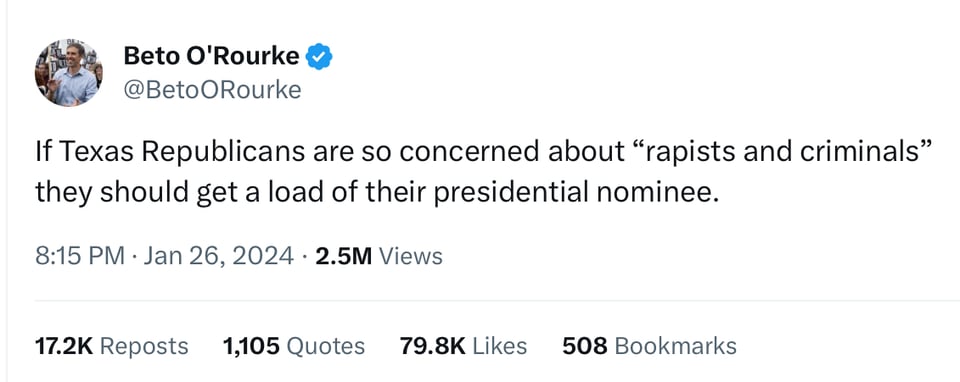
Texas Governor Abbott on immigrants.
Texas Gov. Greg Abbott (R) tells Dana Loesch the "only thing we're not doing is shooting people" crossing the border because "the Biden Administration would charge us with murder." pic.twitter.com/8rDmdW9AUC
— Heartland Signal (@HeartlandSignal) January 11, 2024
American racism.
This week.
Jackie Robinson statue in pieces, burned, at Wichita park | Wichita Eagle.

A Wichita youth-baseball league’s Jackie Robinson statue — which was cut at its feet and stolen from McAdams Park last week, leading to a citywide manhunt and national media attention — was found charred and in pieces Tuesday morning in Garvey Park.
“It’s not salvageable at this time,” Wichita police spokesperson Andrew Ford said at a news conference at the park, which is in south Wichita.
Council member Brandon Johnson said a new statue will be built. He urged people to contribute whatever they can to support that.
League 42 still has a mold from the original sculptor, the late John Parsons, so the new statue will be identical, League 42 founder and executive director Bob Lutz said.
“This is not the result we wanted, but it is a result,” Lutz said. “And now we can move on. We know what’s ahead of us, we know we are going to incorporate a brand-new statue that looks exactly like the old one … We are already working on that.
In a matter of months that will be erected at McAdams Park and we are looking forward to that day.” A GoFundMe has been created to raise funds for the replacement statue. As of Tuesday afternoon, it had raised just over $22,000. An online fundraiser also has been set up to help replace the statue. It can be found at shorturl.at/dgAWZ.
“Any donations that exceed our goal will be put to use to fund our operational needs, including our four education programs,” the GoFundMe said.
First responders were called to a trash can fire at the park around 8:38 a.m. and found the statue. When firefighters extinguished the flames, they found pieces of the bronze statue.
The statue, valued at $75,000, was dismantled before it was burned, Police Chief Joe Sullivan said. “It’s really disheartening to see the remnants of the statue, the disgraceful way in which it has been disrespected,” Sullivan said.
“This is a direct indication of the pressure our investigators are putting on the perpetrators that committed this act.”
He added “there will be arrests” and that it would be better for the people involved to come forward. Sullivan thanked the people who have provided tips and Ring doorbell camera footage from the theft.
On Monday, police announced that they had found what they thought was the truck used in the crime.
It wasn’t reported stolen and police have talked with the owner. Sullivan wouldn’t say if the owner of the truck was a suspect. Ford said police have conducted close to if not over 100 interviews since the statue was stolen early Thursday morning.
Vandals cut the statue at the feet and then loaded it in a truck and took off, according to surveillance video. The statue was installed in spring 2021.
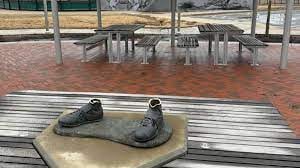
It was a focal point of League 42, a nonprofit organization that serves several hundred low-income youth in its baseball league every year.
Robinson, who wore No. 42, was the first Black player to break the racial barrier and play in Major League Baseball for the Brooklyn Dodgers in 1947. The league is named after him.
It took years of work for the league to get approval for the statue to be created and installed.
Donations, large and small, have poured in from around the country in support of the statue.
On Saturday morning, about 80 people gathered amid frigid temperatures around the space where the statue had been. Marcus Jones, 7, who is going to play baseball in the league for the first time this year handed Lutz $2 from his allowance to help the cause.
Sullivan announced that, through a connection he had in Philadelphia, an anonymous former Major League Baseball player who won a World Series would donate $10,000. The theft caused local and national outrage.
In the past.
In 1969, when black Americans were still prevented from swimming alongside whites, Mr Rogers decided to invite Officer Clemmons to join him and cool his feet in a pool, breaking a well-known color barrier. pic.twitter.com/q0u3cY4m4E
— Ozor Ndi Ozor (@eemmanuels4) January 27, 2024
An answer to Ukraine challenges by MAGA.
CIA director: Not passing Ukraine aid would be a mistake 'of historic proportions.’
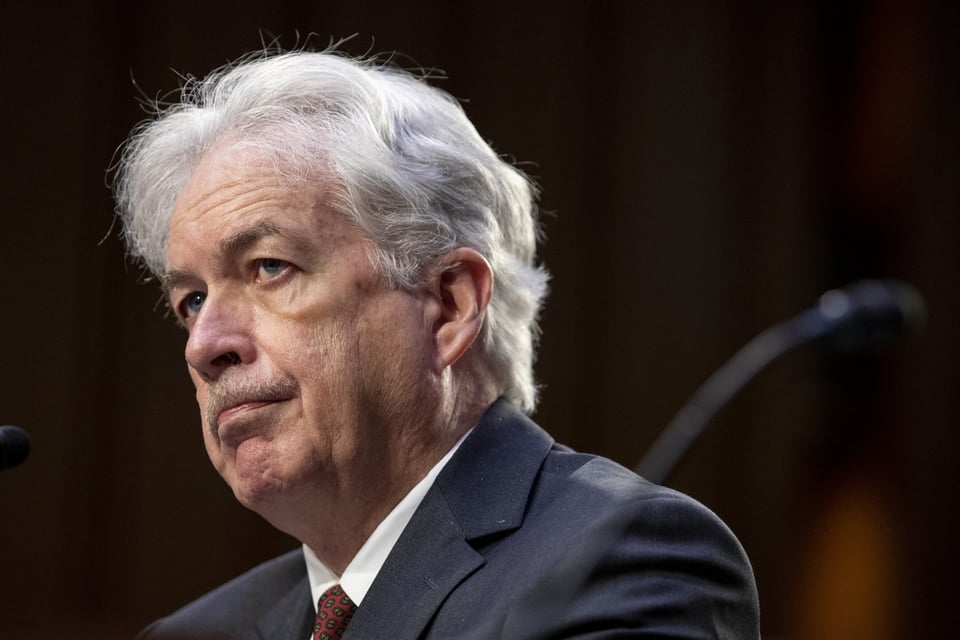
Western allies must continue providing assistance to Ukraine in its war with Russia this year, or risk a mistake “of historic proportions,” CIA Director William Burns wrote in a column published Tuesday.
Burns laid out his case in a Foreign Affairs column, noting that less than 5 percent of the U.S. defense budget — “a relatively modest investment with significant geopolitical returns” — is all that Washington sends to Kyiv.
If an opportunity for serious negotiations to end the war emerges, he wrote, providing arms to Ukraine will put it in a stronger bargaining position. Ukraine’s military would also be able to continue fending off Russian troops while rebuilding its infrastructure, while Moscow spends massive amounts of money to keep the war going, Burns added.
“For the United States to walk away from the conflict at this crucial moment and cut off support to Ukraine would be an own goal of historic proportions,” Burns wrote, referencing a soccer term for scoring a goal for the rival team by putting the ball into a player’s own net.
Burns is the latest top U.S. official to publicly make the case for greenlighting assistance to Ukraine, as lawmakers battle over a southern border deal that’s holding up $60 billion in aid to Ukraine. The Biden administration has been urging lawmakers to push a deal through, but there’s no clear indication when lawmakers might strike a deal.
The director’s column also comes after he secretly visited Ukrainian President Volodymyr Zelenskyy in Kyiv earlier this month, briefing him on his expectations for what Russia is planning in the near future, The Washington Post reported. (Politico).
______________________________________
Chita Rivera has died.
Broadway will never be the same.

Chita starring in The Spider Woman.
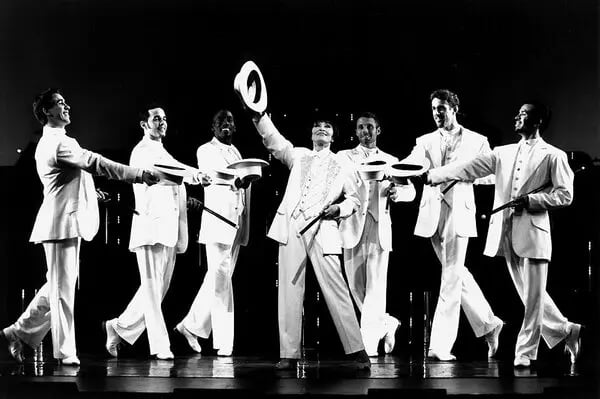
Rivera and company in “Chita & All That Jazz,” a musical celebration of her life in theater, in Philadelphia in 1988.


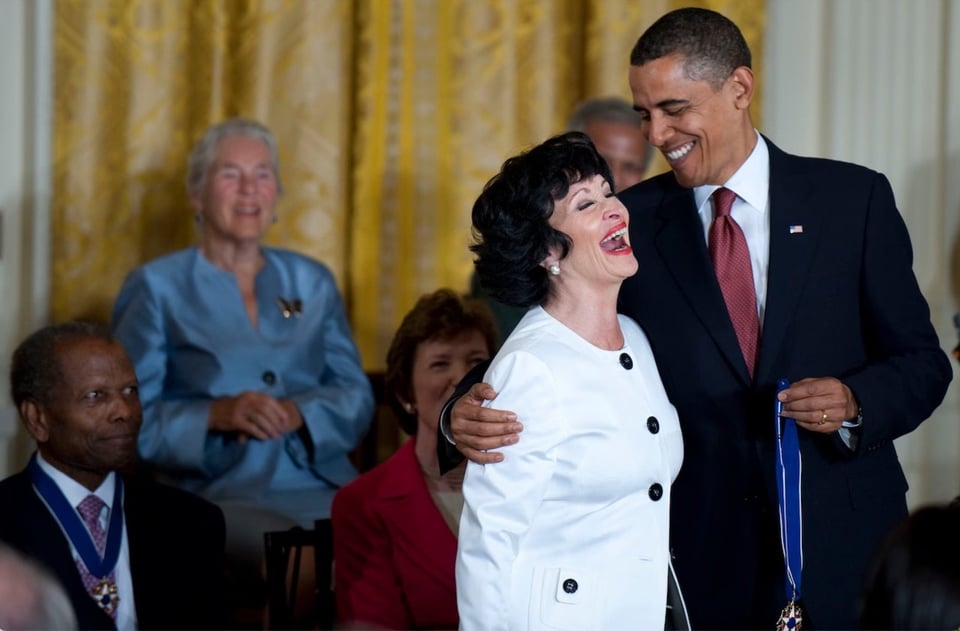
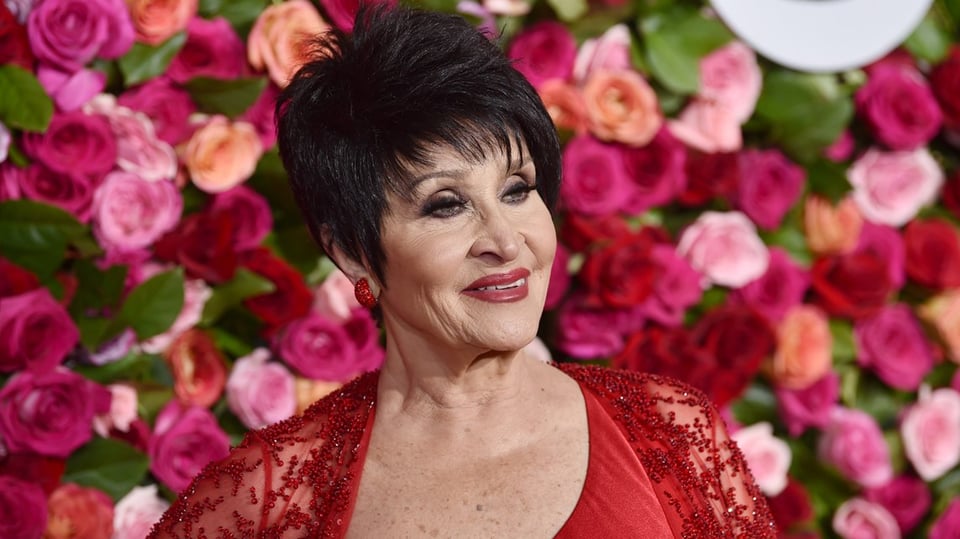
______________________________________
Correction.
Some of you noticed - Last night I posted an old image with incorrect dates for the Mark Rothko Prints on Paper show at the National Gallery in DC. The show started on November 19, 2023, and runs through March 31, 2024.
______________________________________